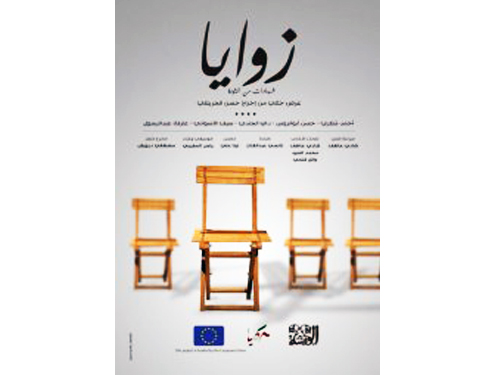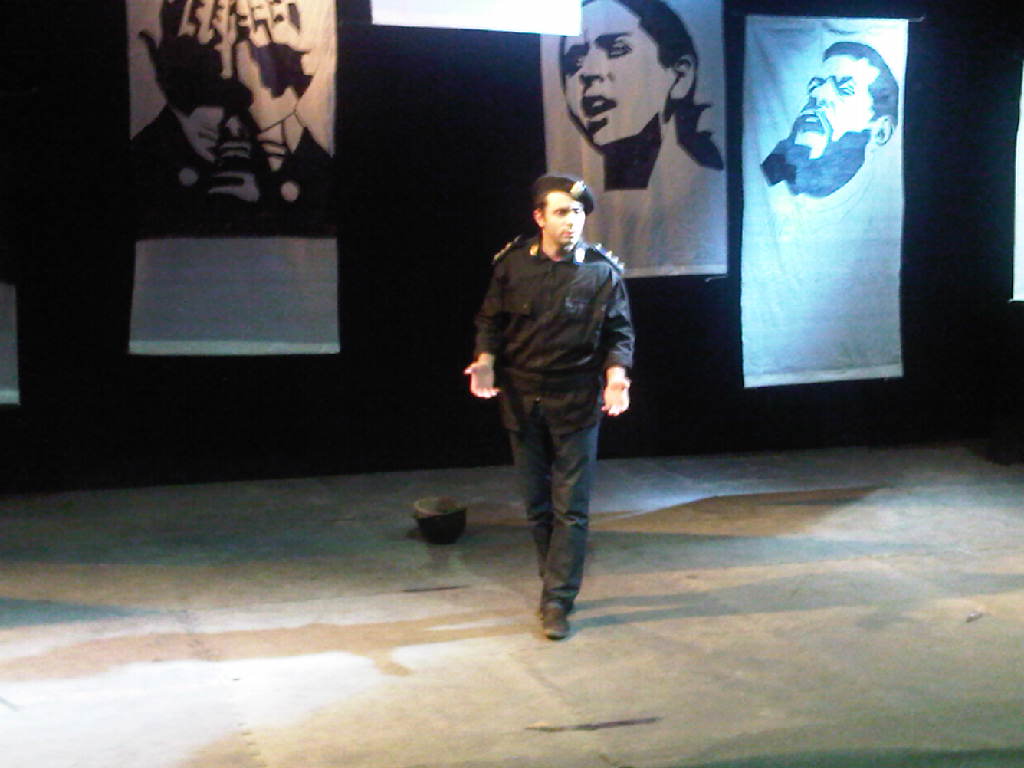Throughout Ramadan we have presented selections from Arabic literature old and new, drawing from Naguib Mahfouz and Salwa Bakr. Now, for the last installment of our Alf Leila We Leila series, we return to Sheherazade and her most famous character, Sindbad the Sailor. Here, using Andrew Lang's translation, is the account of Sindbad's seventh and final adventure, an ultimately victorious struggle against man and animal.
It begins, as usual, with the sailor lamenting his involvement in the first place, assuming that, at his age, his challenges were done and he could finally retire and live peacefully. Then, he is summoned by the Caliph, who tells him that he needs Sindbad to serve as diplomat and messenger to the King of Serendib.
The adventurer is crestfallen.
The Caliph's commandment fell upon me like a thunderbolt.
"Commander of the Faithful," I answered, "I am ready to do all that your Majesty commands, but I humbly pray you to remember that I am utterly disheartened by the unheard of sufferings I have undergone. Indeed, I have made a vow never again to leave Baghdad."
Sindbad reminds the Caliph of his previous adventures, and all the struggles they posed but, although the boss is attentive, he is not convinced. This new task, the Caliph is sure, is not too much to ask.
"I admit," said he, "that you have indeed had some extraordinary experiences, but I do not see why they should hinder you from doing as I wish. You have only to go straight to Serendib and give my message, then you are free to come back and do as you will. But go you must; my honor and dignity demand it."
Sinbad has no choice but to follow directions, which lead him straight to the King of Serendib. Thankfully, the sailor is greeted warmly. The gifts he carries with him might have something to do with it.
First a bed with complete hangings all cloth of gold, which cost a thousand sequins, and another like it of crimson stuff. Fifty robes of rich embroidery, a hundred of the finest white linen from Cairo, Suez, Cufa, and Alexandria. Then more beds of different fashion, and an agate vase carved with the figure of a man aiming an arrow at a lion, and finally a costly table, which had once belonged to King Solomon.
The King is also pleased with the offer of the Caliph's friendship and, after some pleasantries, allows Sindbad to depart for his beloved home. But all is not smooth sailing. On the fifth day, Sindbad's ship is attacked by pirates, an event history (and certainly Sheherazade) could have predicted. But a pirate attack, expected or not, is still a trial, and Sindbad relates the tale with grim directness.
When they had despoiled us of all we possessed, they forced us to put on vile raiment and, sailing to a distant island, there sold us for slaves.
Eventually, Sindbad becomes the property of a rich merchant, who inquires about his bow-shooting skills. Unsurprisingly, Sindbad thinks that he is probably pretty handy with the weapon. The merchant leads him into the forest, positions him in a tree, and gives him a big target: elephants.
So saying he gave me a supply of food and returned to the town, and I perched myself high up in the tree and kept watch. That night I saw nothing, but just after sunrise the next morning a large herd of elephants came crashing and trampling by. I lost no time in letting fly several arrows, and at last one of the great animals fell to the ground dead, and the others retreated, leaving me free to come down from my hiding place and run back to tell my master of my success, for which I was praised and regaled with good things. Then we went back to the forest together and dug a mighty trench in which we buried the elephant I had killed, in order that when it became a skeleton my master might return and secure its tusks.
Sindbad is a natural poacher, and never returns home without promise of a tusk or two. One day, the elephants decide to take matters into their own hands, ripping the sailor from his perch and carrying him into the forest. But what seemed at first to be an attack on his life is really some business advice.
Recovering myself, I looked about me, and found that I was standing upon the side of a great hill, strewn as far as I could see on either hand with bones and tusks of elephants. "This then must be the elephants' burying place," I said to myself. "And they must have brought me here that I might cease to persecute them, seeing that I want nothing but their tusks, and here lie more than I could carry away in a lifetime."
The merchant is surprised, but not unhappy, to see Sindbad alive. Relief at his slave avoiding death soon turns into joy when Sindbad takes the merchant to the elephant graveyard. The wealth of tusks earns Sindbad his freedom, well-timed when he realizes how lucky he was to escape death.
"My brother–since I can no longer treat as a slave one who has enriched me thus–take your liberty and may Heaven prosper you. I will no longer conceal from you that these wild elephants have killed numbers of our slaves every year. No matter what good advice we gave them, they were caught sooner or later. You alone have escaped the wiles of these animals, therefore you must be under the special protection of Heaven. Now through you the whole town will be enriched without further loss of life, therefore you shall not only receive your liberty, but I will also bestow a fortune upon you."
While awaiting the appropriate time to depart, Sindbad helps recover as much ivory for his former master as possible. He is rewarded. This time, Sindbad the Sailor travels by land.
When the ships at last arrived my master himself chose the one in which I was to sail, and put on board for me a great store of choice provisions, also ivory in abundance, and all the costliest curiosities of the country, for which I could not thank him enough, and so we parted. I left the ship at the first port we came to, not feeling at ease upon the sea after all that had happened to me by reason of it, and having disposed of my ivory for much gold, and bought many rare and costly presents, I loaded my pack animals, and joined a caravan of merchants. Our journey was long and tedious, but I bore it patiently, reflecting that at least I had not to fear tempests, nor pirates, nor serpents, nor any of the other perils from which I had suffered before, and at length we reached Bagdad.
Thus, after a life of hard work, and with his ivory watch, Sindbad retires. (Sheherazade's job, of course, is far from over.)




